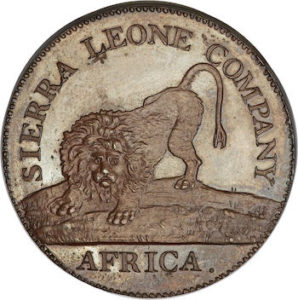
*The Sierra Leone Company was founded on this date in 1792. This white-European corporate body was involved in founding the second British Colony of Sierra Leone.
Their intent was to resettle Black Loyalists who had initially settled in Nova Scotia after the American Revolutionary War. The Company was formed by abolitionists Granville Sharp, Thomas Clarkson, Henry Thornton, and Thomas's brother, John Clarkson. The Company, was the successor to the St. George Bay Company, a corporate body established in 1790 that re-established Granville Town in 1791 for the 60 remaining Old Settlers.
That year, John Clarkson led over 1100 Black settlers from Halifax, Nova Scotia, to establish a new colony. On this basis, the Nova Scotian Settlers founded Freetown, Sierra Leone. Most of these settlers were former slaves of the American colonies, freed by the British during the American Revolution and forced to relocate after the British defeat. The determination of these settlers caused Freetown to take shape and survive after they founded it in March 1792.
The Company issued decimal currency in the form of dollars and cents struck by Matthew Boulton at Soho Mint and issued in 1791 (although these coins did not circulate until the founding of the Colony in 1792) and 1796. When war broke out between Great Britain and France, the Company lost supplies and several ships to pirates and the French navy. American merchantmen, as neutral traders, used the opportunity to establish trade. Trouble continued; in September 1794, the French burned Freetown in a raid.
The colonists rebuilt, and American merchants aided by selling the company vital supplies. During these years, the Colony's acting governor, Zachary Macaulay, and his council agreed to accept American Blacks as settlers with a gift of free Sierra Leone land if they met four criteria: they must have letters of recommendation of their upright character from their clergy, they must agree to become British subjects and abide by British law, they must secure their passage to the Colony, and they must clear at least one-third of the land given to them for agriculture within two years of arrival. The Sierra Leone Company was succeeded in 1807 by the African Institution.